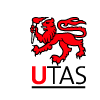Students Rights and Responsibilities
Rights of the student
The students’ rights, responsibilities and obligations in relation to assessment include:
For further information about the rights, responsibilities and obligations in relation to student assessment, please refer to the following documents:
- Code of Conduct for Teaching and Learning
- Rule on Academic Assessment
- Ordinance on Academic Progress
- To be informed of the assessment policies and procedures of the University and the relevant Faculty and School;
- To be informed in writing the criteria and methods of assessment for a unit, specific attendance and performance requirements, and a timetable of all assessment tasks; penalties for late submissions of assessment tasks; and the relationship of assessment procedures to the aims and objectives of a unit;
- To receive fair, helpful and timely feedback on their academic work, including evaluation of their performance and progress;
- To have assessment tasks returned with feedback quickly, and
- To have access to examination scripts for a period of one year.
Students’ Responsibilities
The responsibilities and obligations of students include:
- Engaging in assessment tasks and other teaching and learning tasks;
- Being aware of the specific requirements to pass
- Being aware of the mechanisms within the University, Faculty and School for seeking assistance and advice, in particular in relation to problems in meeting assessment deadlines
- Behaving honestly, ethically and professionally, in a manner that does not result in either academic disadvantage to any student or unfair advantage to one or more students;
- Being aware of policies and penalties related to plagiarism and cheating, and not engage in plagiarism or cheating of any kind, and
- Being aware of procedures for appeal against academic decisions.
|




